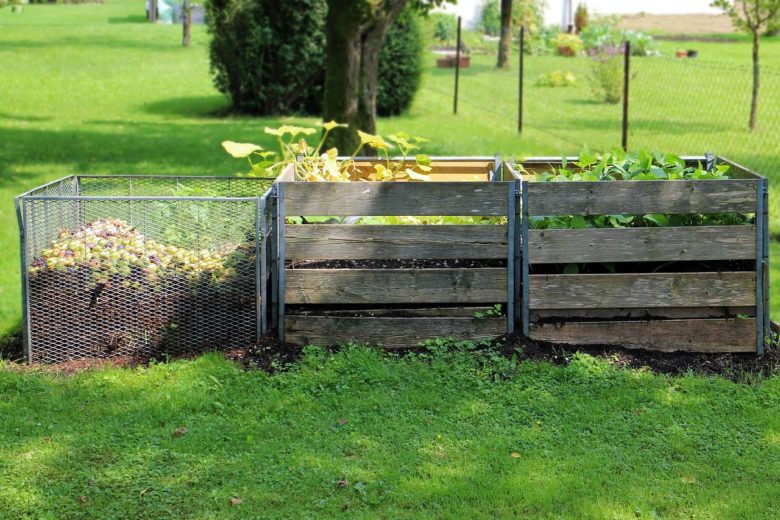
Eco-Friendly Composting Methods That Will Transform Your Garden
We are reader-supported. When you buy through links on our site, we may earn affiliate commission.
What if I said you could reduce landfills and improve your land while spending no money in the process of fulfilling these two crucial tasks? Anyone can contribute to the environment while transforming their yard into a thriving space with crops and floral life. All that’s required is a little knowledge on composting.
Composting grants you the power to take your garden to the next level. You can transform ordinary dirt into soil that properly nourishes your greens. Best of all, you don’t have to rely on the synthetic chemicals emitted from commercial fertilizers. Choosing organic is as simple as organizing your waste and setting it aside.
If you haven’t started composting yet, you’re missing out on the valuable benefits this simple act has to offer.
Reducing Your Ecological Footprint
Did you know in the United States alone, families generate a cumulative amount of roughly 250 million tons of trash per year? The average car only weighs approximately one half of a ton, so imagine 500 million vehicles stacked into one unbelievably huge lot. Pretty unfathomable, right?
You can play your part in reducing waste by transforming trash into a valuable resource. Virtually any organic, non-animal-based material will work. Instead of tossing your coffee beans, fruit peels and paper products into the dumpster, use them in your yard instead!
One man’s trash is the soil’s treasure.
How Composting Improves Your Land
Composting takes ordinary waste and transforms it into a crucial element that strengthens your soil.
When you place all of your organic materials in composting containers, the components decompose into an eclectic mixture of mineral-rich soil. That’s because insects and worms consume all of the waste. This matter then expels from the insects through waste in the form of a nutrient and vitamin-rich mixture.
Nothing beats the natural process of composting. While synthetic fertilizers provide nutrients to your land, their impact is often short-lived. Composting provides a natural fertilizer that nourishes your ground with a more significant influence.
Start with Organizational Measures
Creating the perfect composting pile requires a bit of preparation. When you dispose of waste, you may find yourself separating your trash into various categories. Plastic goes into one bin and paper goes into another. But when you choose which waste goes into your compost pile, you have to use caution.
Tossing all of your waste into one large trash can is easy. But when you want to transform your scraps into valuable soil, you have to eliminate unnecessary materials that will ruin your fertilizer.
Keep a separate container for waste which you will not place into your composting bin. You should discard diapers, recycled magazines and meat scraps separately to keep your waste divisions organized.
Know Which Materials to Throw Aside
Composting is a science. With the right know-how and knowledge, you can produce the fertile soil and land you’ve always dreamed of achieving.
No two materials are the same, especially when it comes to their ability to decompose. Not sure which products to include in your composting pile? Check out the list materials to avoid throwing in your compost pile:
- Plastic materials
- Cat and dog excrements
- Poisonous or diseased plants
- Fish and meats
- Colored or glossy papers
- Bones
- Ashes from charcoal or coal
Scan the Environmental Protection Agency’s website for a greater understanding of which materials to withhold from your composting pile to get the most out of your effort.
Consider Root Growth Hormones for Added Growth
By composting your waste, you’ve already taken the first step necessary to provide your plants and crops with the nutrients they need. The next step involves acquiring the proper root growth hormone.
If you’re unfamiliar with this process, rooting hormones are a synthetic mixture of plant growth hormones that assist in the plant’s natural formation of roots. Using this compound will help your plants grow thicker, healthier roots which grant your greens a stronger life potential. You can make your own rooting hormone using apple cider vinegar, honey or willow water.
When you use root growth hormones in combination with composting soil, you aid your plants’ growth process immensely. Once you find the right rooting hormone for your greenery, applying the compound is relatively simple. After you drip powder onto a cutting, you will plant the mixture into a hole in your soil. Nutrient-rich soil produced from composting ensures your growth hormones perform to their maximum potential.
Turn Composting Into a Family-Friendly Activity
You don’t have to exhaust yourself in the process of building a better future for the environment. Take gardening, for instance. Planting and sowing seeds in your garden allow you to spend time outdoors with your family in a bonding experience that gets all family members involved.
Making fertilizer through composting offers an incredible learning experience children can engage in through hands-on learning. You’ll enlighten them on the benefits of recycling while they play an active part in bringing your garden to life.
Once your compost pile transforms into good soil, you can plant flowers and crops together as a family. Picky-eaters might even try new tastes knowing they helped create the foods lining your kitchen.
Save the Environment and Lessen Your Expenses
Did you know composting can save you hundreds of dollars on your monthly food expenses? Making your own organically grown fertilizer provides you with a fresh heaping of soil you can use to sow vegetables and fruits. If you’ve ever shopped organic before, you know the price of crops can be quite pricey, especially during the cold winter season. Why not grow your own produce instead?
Compost-friendly waste products grant you the power to harvest food from the comforts of your own home. When your fruits or vegetables spoil, you can recycle them with the satisfaction of knowing they will one day help new crops thrive.
Share on
Like what you read? Join other Environment.co readers!
Get the latest updates on our planet by subscribing to the Environment.co newsletter!
About the author
Jane Marsh
Starting from an early age, Jane Marsh loved all animals and became a budding environmentalist. Now, Jane works as the Editor-in-Chief of Environment.co where she covers topics related to climate policy, renewable energy, the food industry, and more.





